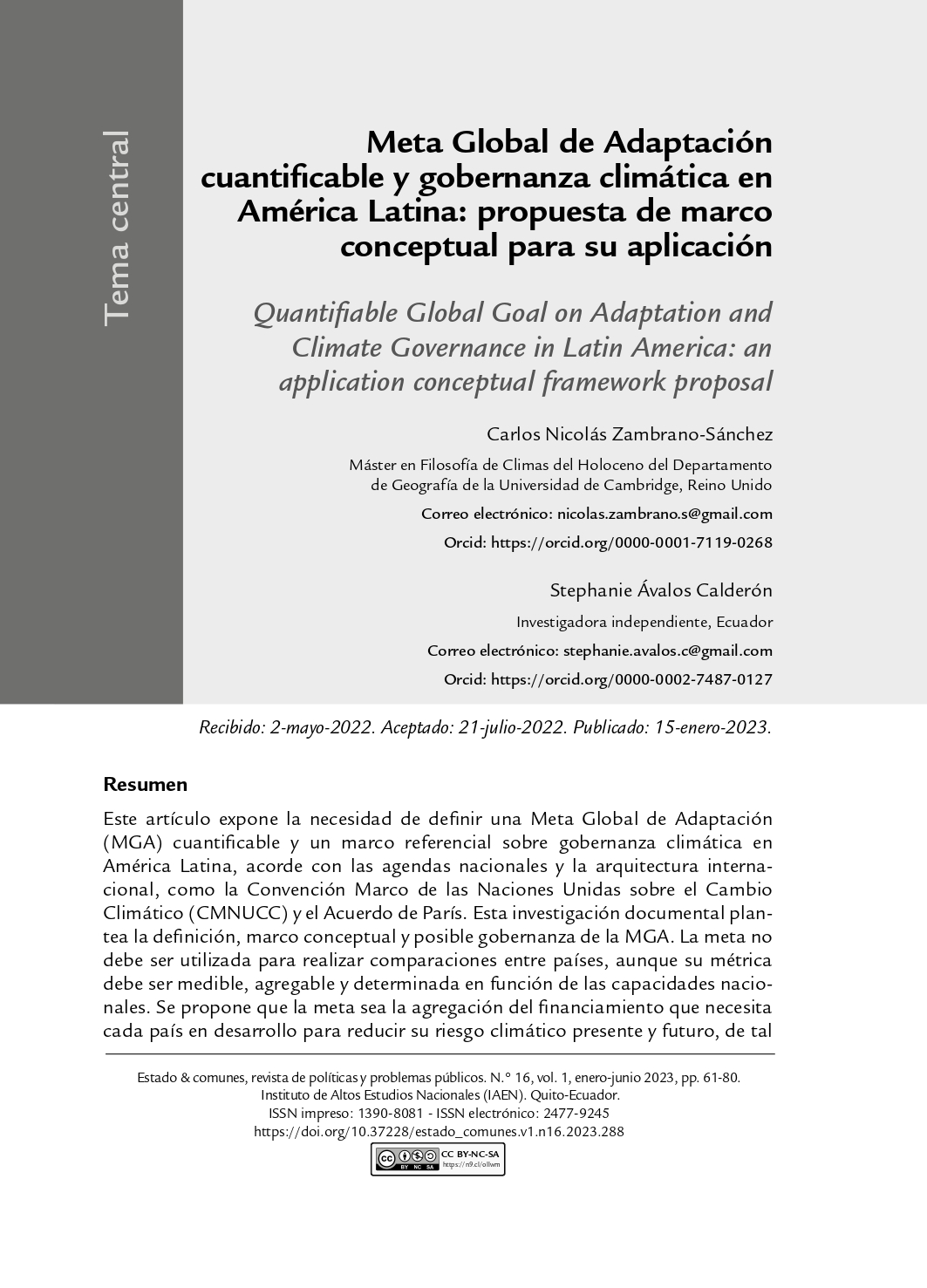Meta Global de Adaptación cuantificable y gobernanza climática en América Latina: propuesta de marco conceptual para su aplicación
Contenido principal del artículo
Resumen
Este artículo expone la necesidad de definir una Meta Global de Adaptación (MGA) cuantificable y un marco referencial sobre gobernanza climática en América Latina, acorde con las agendas nacionales y la arquitectura internacional, como la Convención Marco de las Naciones Unidas sobre el Cambio Climático (CMNUCC) y el Acuerdo de París. Esta investigación documental plantea la definición, marco conceptual y posible gobernanza de la MGA. La meta no debe ser utilizada para realizar comparaciones entre países, aunque su métrica debe ser medible, agregable y determinada en función de las capacidades nacionales. Se propone que la meta sea la agregación del financiamiento que necesita cada país en desarrollo para reducir su riesgo climático presente y futuro, de tal manera que su capacidad adaptativa incremente de manera gradual frente a un nivel de referencia actualizado cada cinco años. Pese a los esfuerzos de adaptación y la planificación que existe al respecto, persiste la duda sobre quién debe financiar las medidas de adaptación.
Descargas
Detalles del artículo
Cómo citar
Número
Licencia
CC BY-NC-SA. Esta licencia permite compartir, copiar, distribuir, ejecutar y comunicar públicamente la obra, además de hacer obras derivadas.











